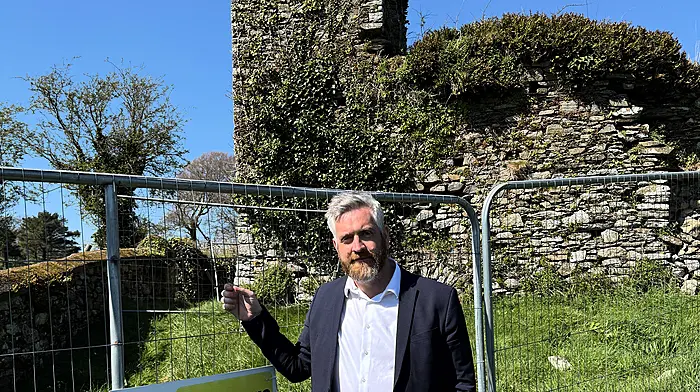BY LINDA HAMILTION
ONE reason why most people don’t stick to their New Year’s resolutions is they aim too high, setting difficult and unrealistic goals. However, making positive changes doesn’t have to be a daunting affair. Here are some simple behavioural ideas on how to improve your mental health and be a little bit happier in 2023....
Make plans, enjoy the anticipation
There’s much to be said for spontaneity, but the great thing about planning things is that anticipating makes us happier. Indeed, one study found planning or anticipating a trip produced a bigger spike in happiness than actually taking the trip. The joys of anticipation shouldn’t be underestimated – even if you end up not taking that trip, or even if it turns out to be a middling affair, it will still have boosted your well-being in the lead-up.
Trips aside, you can harness the power of anticipation in all kinds of ways in your daily life. Having things to look forward to, whether big or small, will boost your mood and make you feel more optimistic and motivated.
Get out in nature
Staying active and being out and about is great, but it’s even better if you get out in nature. Spending time in green spaces is good for us. Physically vast spaces – for example, a hill with panoramic views, the shore of the sea – can inspire feelings of awe, taking us out of our heads. Less inspiring green spaces are also good – for example, research has found our brain waves shift into a more relaxed state as soon as we enter a park.
Indeed, even viewing nature through a window is good for us. In his book Happiness by Design, Prof Paul Dolan notes research showing prison inmates with a view from their cell made fewer visits to the prison doctor than those with no view, and surgical patients with a view of nature from their hospital room recovered quicker than those with a view of a brick wall.
Nature helps everyone; even if you think you don’t like being out in nature, says Dolan, you do! His advice: get out more and buy some plants.
Try new things
Life can get dull if you do the same things every day. In contrast, novelty excites, refreshes and helps us feel alive. Why not make a decision to do at least one new thing every week?
It might be cooking something new; walking, cycling or driving to new places; going to a new cafe, bar or restaurant; discovering new music (this is easier than ever as apps like Spotify suggest music they think you will like based on your playlists); booking a short break in a county you’ve never been to before; getting to know new people; learning a new skill or taking up new hobbies. Really, the possibilities are endless.
Form healthy social connections
Social connection is vital to our mental health, so it’s important to spend as much time as possible with people you like and to invest in relationships that matter to you. By the same token, it’s also important to re-evaluate relationships that are not working out. If you routinely feel unhappy after spending time with a friend (or partner), it’s important to question whether it’s worth persisting with the relationship.
Close relationships aside, why not resolve to make more small chat with people you don’t know very well in 2023? Prof Paul Dolan suggests that instead of using the toilet across the hall at work, start using one at the other end of your floor – it will force you to walk across the office, making it more likely you will casually socialise with others.
Similarly, as I’ve noted before, research shows having brief exchanges with strangers – for example, talking with a cashier – is more enjoyable than people think and good for well-being. Even the most casual social connections can reduce loneliness and increase a sense of belonging and happiness. This column has focused on behavioural change in 2023 – the B in CBT (cognitive behavioural therapy). In my next column, I’ll offer some advice on the C in CBT – that is, cognitive change and the importance of adapting more helpful thinking patterns.







